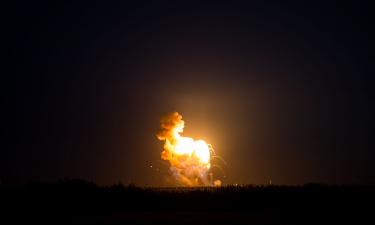Sea Island set for heated debates
Debates of the US Greater Middle East Initiative at the G8 summit in Sea Island is going to be heated, as the parties are far from consensus, a source in the Kremlin who took part in preparing the meeting announced.
This is first of all true about one of the summit's key issues, the US Greater Middle East Initiative, he said. After the debates the leaders are to adopt a political declaration and a plan of action.
The initiative envisages broad political and social reform in the Middle East and introduction of Western democratic norms. For example, it proposes setting "centers to support democracy and development" in the region's nations and to work with civil society institutions.
There has never been a more difficult situation with coordinating the parties' stands for a G8 summit, the source said.
"I cannot recall any other issue that has caused such heated debates and on which the stands of the countries after five-month negotiation still are rather different," he said.
Talking of Russia's stand on the issue, the Kremlin representative pointed out that on the whole Moscow "wants such program to exist and is ready to participate in some of its parts, but it has doubts about a number of issues".
First of all, the Russian party believes that "introduction of any reforms from abroad should be done on the request and with the consent of these countries' governments". "It is improver to act bypassing another government," the agency's interlocutor pointed out.
Secondly, massive financial aid to the Middle Eastern nations, proposed by the initiative's authors, is absurd. "Now that oil prices are growing this proposal receives a certain coloring. Except for Yemen, all countries of the region are medium- or highly-developed. This aid is inappropriate - some of these nations are quite able to finance anyone, even some members of the G8," he said.
Moreover, the Kremlin representative doubts the initiative's thesis that reforms can help to settle regional conflicts. "I cannot recall a single case when an international security conflict was resolved by political reforms in one of the involved countries," he pointed out.
Thus, coordination of the stands on the Greater Middle East Initiative is "the most serious issue", he concluded.
Some disagreements, however, have already been overcome, which is a positive development, the source said. For instance, "some crabbed wording has been softened," he pointed out. As an example he cited Washington's version of a clause reading that the G8 considered the developments in Iraq "a magnificent model" for all states of the region and committed itself to spreading it to other nations. This thesis will not be included in the documents proposed for adoption at the summit.
Subscribe to Pravda.Ru Telegram channel, Facebook, RSS!





